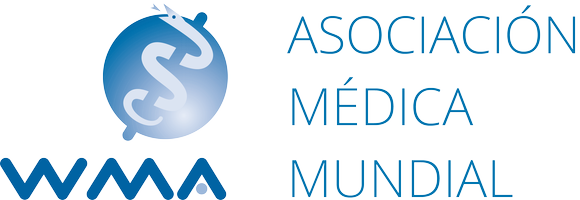Statement WHO Forum alcohol, June 2019
Copiar PDF
THE WORLD MEDICAL ASSOCIATION, INC.
L’ASSOCIATION MEDICALE MONDIALE, INC
ASOCIACION MEDICA MUNDIAL, INC
Centre International de Bureaux
Immeuble A «Keynes» Website : www.wma.net Postal Address :
13, chemin du Levant Telephone : (33) 4 50 40 75 75 Boîte Postale 63
01210 FERNEY-VOLTAIRE Fax : (33) 4 50 40 59 37 01210 FERNEY-VOLTAIRE Cedex
France E-mail address : wma@wma.net France
2019 WHO FORUM ON ALCOHOL, DRUGS AND ADDICTIVE BEHAVIOURS
Geneva 27-28 June 2019
WMA Statement
The World Medical Association is the global federation of Medical Associations representing the millions of
physicians worldwide. We have a long-standing commitment towards the reduction of the harmful impact of
alcohol on health and society and we actively supported the adoption of WHO Global strategy to reduce the
harmful use of alcohol in 2010.
Alcohol consumption constitutes a major trigger for NCDs, communicable diseases, violence, and injuries and
we note with great concerns the limited progress made to reverse the current trend since the adoption of the
Global Strategy in 2010.
We recommend prioritizing the development of concrete and targeted strategies to prevent and reduce the
harmful use of alcohol and related health, social and economic consequences, taking into consideration the
following key issues:
1. Social, cultural, environmental and economic factors are major determinants on the quality of life, good
health and life expectancy. In tackling the alcohol burden, we recommend a holistic approach, beyond
the health sector alone, allowing action on those broader factors with the collaborative engagement of
multiple sectors such as finance, trade, taxes or education. Strategies to reduce and prevent alcohol abuse
require striving beyond the health target of the SDGs 2030 to reach the overall global goals to end
poverty and fight inequalities.
2. In order to protect alcohol control measures, we recommend that alcohol be classified as an
extraordinary commodity and that measures affecting the supply, distribution, sale, advertising,
sponsorship, promotion of or investment in alcoholic beverages be excluded from international
trade agreements. Health impact assessments of trade agreements constitute a necessity in order to
protect, promote and prioritize public health over commercial interests.
3. Finally, health professionals as well as medical and social services must be provided with the
education, resources and support necessary to prevent harmful use of alcohol and treat people with
alcohol dependence. Health professionals also play a key role in education, advocacy and research.
We welcome the SAFER initiative and hope that this new WHO-led roadmap will address those issues and
give a new impetus to Member States and other relevant stakeholders to address in a comprehensive way this
public health threat.
***
